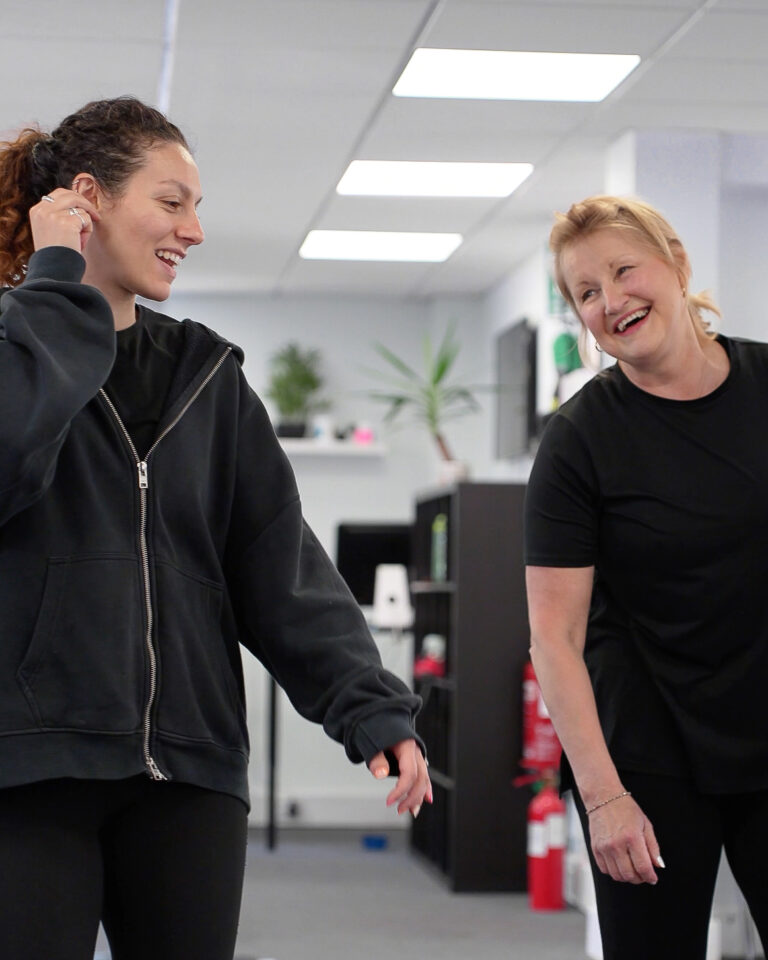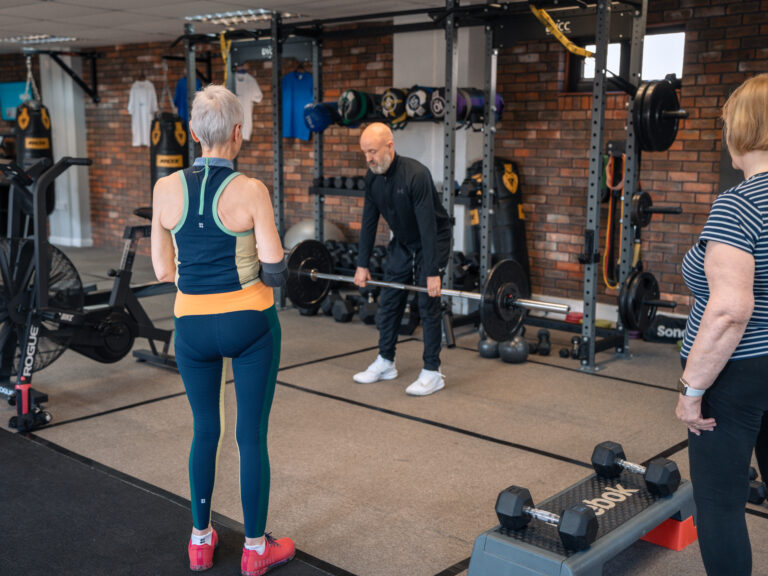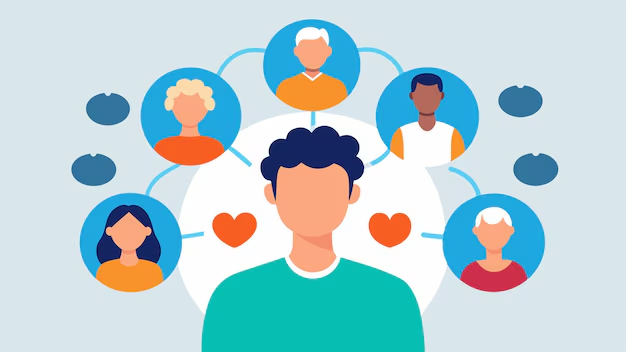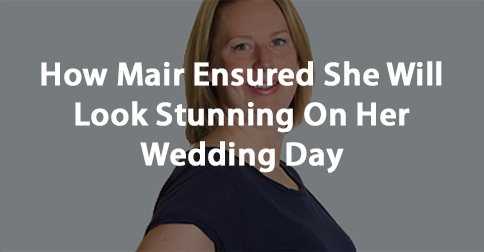
Welcome to our next installment of Client interviews. This week we bring you Mair. You are able to listen to her podcast on itunes or read below:
Mair has been a client at DVCC Bedford and has achieved excellent results. We decied to interview her, to hear how she has managed to change her unhealthy habits formed when she was at University.
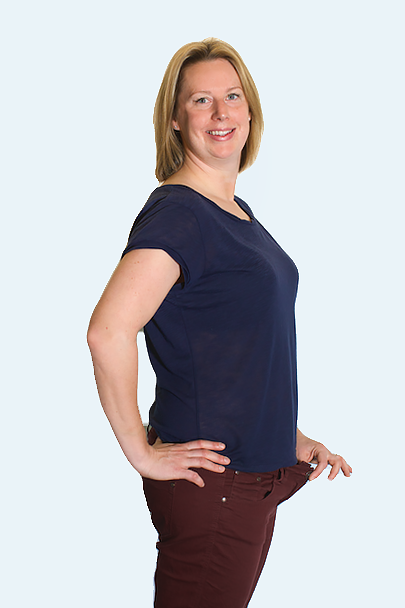
Mark: So first thing is first, Mair, thank you for doing this and how old are you just to get some context on people
Mair: 32
Mark: Thanks. So obviously, your weight loss hasn’t happened overnight. What age was it that you decided you wanted to or needed to lose weight?
Mair: When I finished university, so probably 21 and when I came home and my mum told me I was “fat”
Mark: Okay. Harsh from your mother. Was that the pure stimulus for getting you into wanting to lose weight
Mair: Yeah
Mark: Had you not wanted to before
Mair: I knew I’d put on some weight at school, and carried that on at University. I suppose it was the kickstart when your mum says that to you. It sounds strange, but when you have put on fat, you don’t necessarily realise until someone tells you.
Mark: Right, okay. So how many stone were you overweight? I hate that word F-A-T. I never use it as I think it has negative connotations now. I know it didn’t originally but it does seem to now. So how many stone had you put on at university?
Mair: I think probably 4 – 4.5 stone. In total probably 3 dress sizes
Mark: So that opens up a few good questions I think. So you were 21 – so it’s been basically 11 years that you have now been exercising and being healthy. That’s quite a dramatic change for someone who has had 21 years of potentially not being that healthy.
How did you keep yourself motivated at the beginning, as that can often be the hardest time?
Mair: Yeah
Mair: I think from changing diet and exercising and starting to feel better. And then people commenting that you look better. And the main thing was having my photo taken and not hating it. Actually liking what you see when you have your photo taken, thats what made it all worth it
Mark: Okay. So initially, it was the results that you saw?
Mair: Yeah, results, feeling better, so not feeling tired and extremely unhealthy
Mark: And that actually is my next question. What were the habits that made you 4.5 stone overweight and what are they like now? So whats a day in the life of Mair at 21 compared to now
Mair: Probably a lot of drinking
Mark: Alcohol?
Mair: I was out every weekend and actually probably out most nights. And obviously being a student the food I ate was cheap – Pasta seemed to be a lot cheaper than meat and veg.
I never ate breakfast, lunch was sandwiches, crisps, chocolate, fizzy drinks and then I would have pastry in the evening. Also when I finished university, I had a job where I worked a lot of evenings and came home to a lot of pasta at 8:30pm/9pm
Mair: That was basically my routine
{{cta(‘857c1d02-22a0-4323-a96c-965fca25de7d’)}}
Mark: So to let people know, you are the physiotherapist of Bedford Blues
Mair: Yes
Mark: So obviously you’re around sport people. I guess you actually might not have chosen that career path had you carried on with your unhealthy habits?
Mair: No. I feel if you’re in a health service, particularly in sport, and you are overweight you are not setting a good example to athletes you look after
Mark: So obviously the habits you had back then are not as good as the ones you have now. What would you say the things that you get up and do every day now are that have made the difference?
Mair: So I eat breakfast for a start, drink more water is another thing. I generally don’t eat anything sugary and now I exercise probably six times a week and actually really enjoy it.
I don’t shy away from it like I did before. When I first started, I was a member of a gym but I would go in and just do half an hour just a bit of this and a bit of that.
Mark: So when would you say you made the switch over in your mind, that this is just how you’re going to be?
Mair: It probably took a couple of years. Exercise I picked up quite quickly because I did quite a lot of it in school.
It was between 18 and 21 when I didn’t do any exercise. So I got back into exercise pretty quickly, but my major thing was breakfast because I never really used to eat breakfast when I was growing up either. So it was probably my diet that took that a little bit longer to fully flow into place.
Mark: What do you have for breakfast now?
Mair: Chicken
Mark: Chicken! So obviously people listening know that for weight loss, the best thing to eat for breakfast is some protein, something containing protein and some healthy fat.
Now Mair is pretty good in being able to eat chicken. I can’t even eat chicken for breakfast but salmon and eggs are great options also
Mair: Yes I have Fish Oils also, and water
Mark: Very good. So how long have you been a client at DVCC?
Mair: Since it first opened, then I had to go back to a normal “gym
Mark: So what made you come back? As you were trianing for the Marathon right?
Mair: Yes I was training for the Marathon, but despite doing a lot of training I still found myself putting on weight and feeling wobbly. My joints also started aching and my partner suggested I needed to do more resistance work
Mark: Interesting that you are a physio but need telling by your partner
Mair: I know. You pay attention to everybody else but yourself
Mark: Yes, exactly. So you were doing a lot of running
Mair: Yes
Mark: And you actually put on weight?
Mair: Yes I put on weight
Mark: Wow. Thats something we tell a lot of clients, as they often hear their friends say “I’m going to run the marathon this year” and they are doing it as their stimulus to lose weight
Mark: Its the type of training and potentially the dietary suggestions that people have for marathon training that leads to weight gain. You did very well in marathon but in terms of your aim of losing weight it didn’t necessarily match up?
Mair: No, I recommend intervals over long distance running…
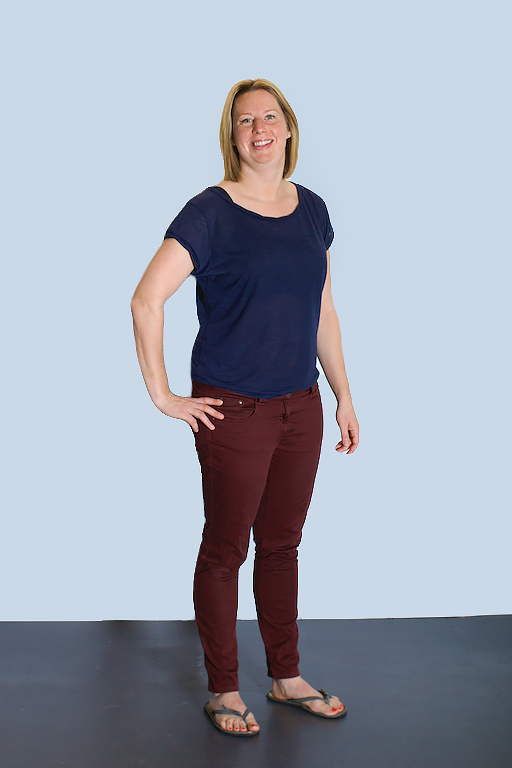 Mark: Interesting as we have that conversation a lot with new clients. We obviously have no problem with long distance running if you enjoy it, it’s a great thing and it’s a good stress reliever. However, if you’re trying to do the best thing for fat loss and you have a small amount of time, like Mair is saying, intervals are always the better option
Mark: Interesting as we have that conversation a lot with new clients. We obviously have no problem with long distance running if you enjoy it, it’s a great thing and it’s a good stress reliever. However, if you’re trying to do the best thing for fat loss and you have a small amount of time, like Mair is saying, intervals are always the better option
Mair: Lots of hills
Mair: Cemetery hill
Mark: Cemetery hill in Bedford, that is. I would NOT suggest you go up there. It’s very, very steep!
Mair: Makes you feel sick
Mark: So you have had 11 years of exercising now, how many days would you say you’ve had where you’ve stopped exercise because of work or whatever? Or have you managed to always maintain it in your lifestyle?
Mair: No. I think work was taking over for me, but now in the last probably year to 18 months, I’ve switched it, so my exercise takes priority over work
Mark: Right, okay. So would you schedule it then or…?
Mair: I schedule my sessions in every week, so I book my sessions on a Monday for the following week. I’m now making the effort to get up early to come to the 6:00 AM Transformation Camps, which is something I would never have done before.
Mark: Good. And that’s just because you know how much better you feel when you’re exercising?
Mair: Yeah, and now my energy is higher. I think I’m actually addicted to exercising because I’m now doing exercise like six times a week, I feel quite anxious if I don’t do it now
Mark: So just finishing up then. What advice would you give to someone who is similar to how you were, so maybe 4.5 stone overweight?
Mair: Well, I would probably say to change things one at a time. I know from my experience if patients are overweight, they come in and say they are starting a diet and training. Like weight watchers, and they always seem to fail at the first hurdle, as they try to change everything at once
Mark: Right
Mair: I probably say get into exercise first, and then maybe change your diet once you have exercise in your routine.
Change your diet one bit at a time, because I know that my diet was a lots of carbs and sugar, now it’s just protein and vegetables. I don’t think I could have done that at the same time as exercising.
So I think just change one thing at a time. If you have a slight stumble, don’t be disheartened about it, and just try and get back onto the wagon again. But the most important thing is finding which exercise suits you and having support from somewhere like the DVCCand people that are going to help you get to your goal and then set some realistic aims
Mark: Good. Thanks Mair. That’s good and that will help people. That’s something that we try to suggest to people is if you go and do everything at once and then you stop one part of it, you feel like you have failed and you stop all of it.
Whereas if you are making small changes, like starting to have breakfast or you are exercising and trying to do three times a week to start with. These small changes will lead to gradual progression.
So great. Thank you very much, Mair. I appreciate that. Leave your comments if you have any, and I will be sure to show them to Mair to have her reply.
{{cta(‘3a9efe0b-ea2d-45f3-86ab-48c9ac58d34c’)}}



